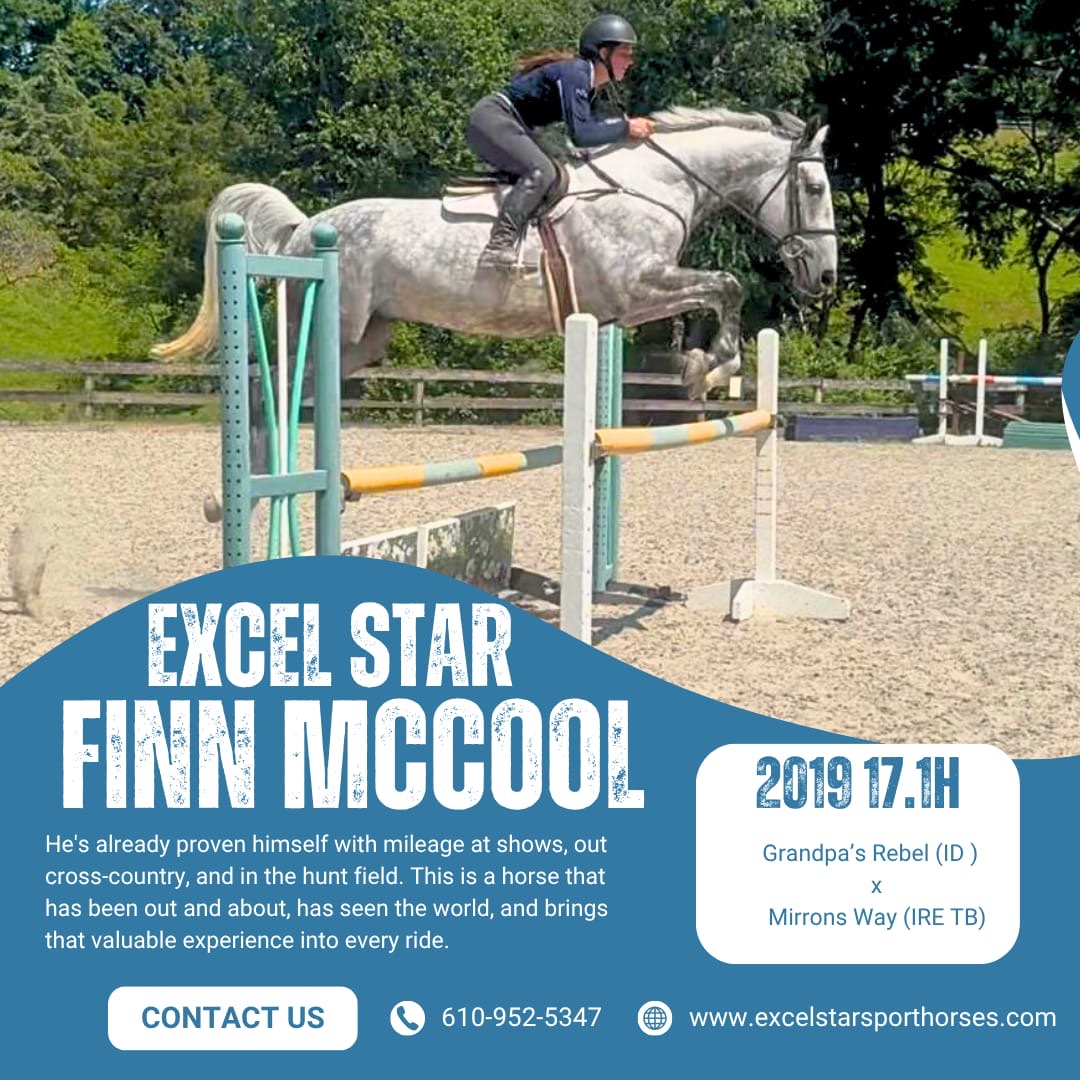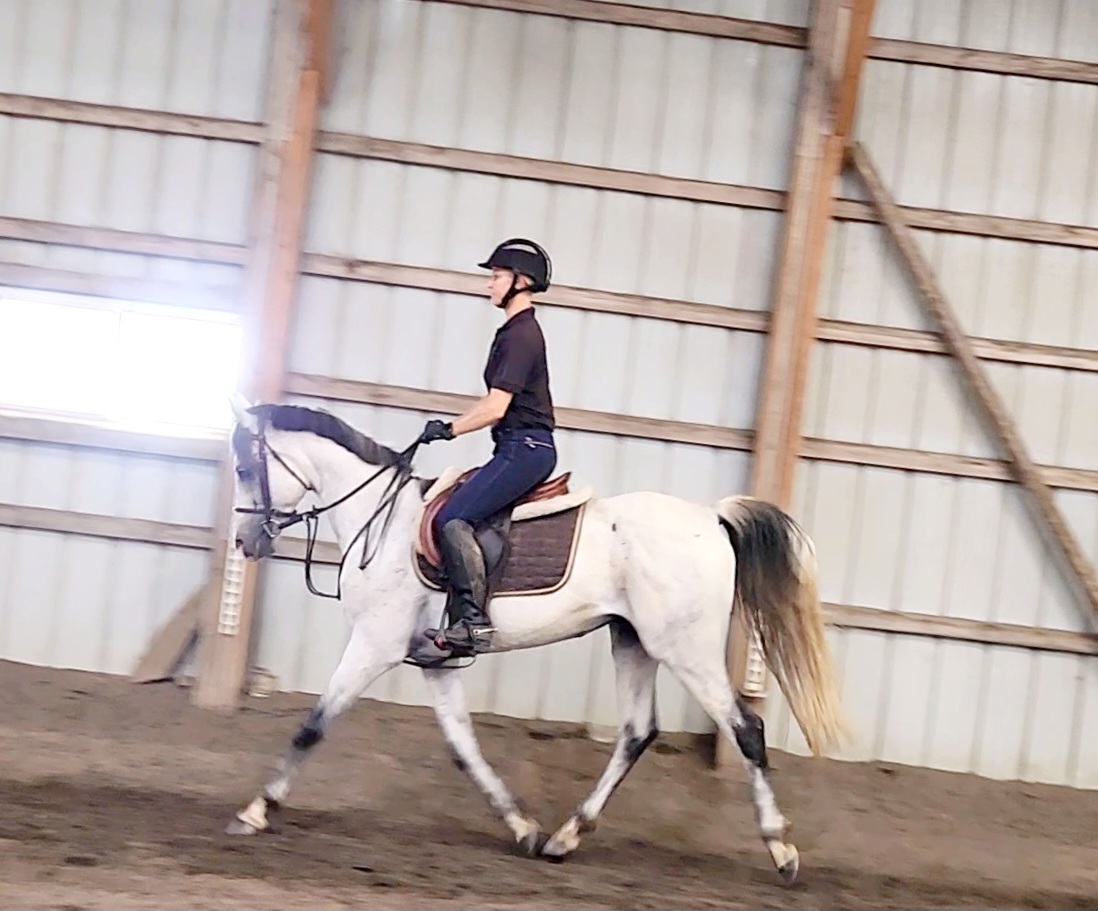
One of the great prides of modern equestrian sport is that men and women compete against each other on equal footing. There are no women’s divisions or men’s divisions, because there is an understanding that women and men are equally able to ride and train horses.
Yet it took almost 60 years for the individual eventing Olympic gold medal to be won by a female rider. Lana DuPont became the first female eventing Olympian ever when she rode in the 1964 Tokyo Games. Fifty-seven years later, Julia Krajewski won the individual gold medal at the 2021 Olympic Games, which was—somewhat fittingly—also held in Tokyo.
Why did it take almost six decades for a woman to become the Olympic champion in eventing? The answer might lie in the fact that it is hard for women to balance their athletic careers with having children. Pregnancy and raising kids require taking time away from the sport, although the amount of time female athletes spend away varies depending on their preferences and circumstances. I have known women equestrians who have lost sponsors and owners as a result of their decision to have children. I have never heard of a male rider who decided to have children losing sponsors for that reason.
We now have some amazing role models in the sport for women riders who are also mothers. World Number 1 Ros Canter, former World Number 2 Jonelle Price, and countless others seem to be able to balance it all. There is no blueprint or manual for how to make it all work, but there do seem to be many examples nowadays of women riders at the top of their game with children proudly by their sides.
Ride iQ’s podcast series “Equestrian Mama” delves into the challenges of pregnancy and motherhood for riders. The podcast is hosted by dressage rider Lucy Courchaine, who explores a number of different topics across four rich, honest, and fascinating episodes. Lucy is a Grand Prix dressage competitor and USDF Gold, Silver & Bronze medalist based in New England.
The first episode covers navigating one’s first pregnancy. Lucy talks about her own first pregnancy, and the push and pull of preparing to be a mother and running her dressage training business. One of the things that struck me about listening to this episode was how frank Lucy was about the feelings of aloneness and panic she experienced when she was pregnant for the first time. How would she be able to keep her business going while pregnant, and then after having her baby? What would her systems look like? There were many unknowns, but Lucy relied on her friends for advice and support. They assured her that she could continue to ride while pregnant if she wanted to, and that her clients would likely be supportive of her exciting news. They were, and she realized that she could indeed fit in this new, life-changing thing into her life as an equestrian. She restructured her barn slightly and decided to hire some additional help, but she largely kept her business model the same. Finally, Lucy describes a new level of strength she discovered while going through her first pregnancy, and how that strength has made her even more committed as a dressage trainer.

Photo courtesy of Ride iQ.
The second episode of Equestrian Mama features a guest speaker, OBGYN Dr. Kathleen Bertuna, who talks about riding while pregnant and postpartum recovery. The overarching theme of this episode was that every person is an individual and thus will have different levels of comfort with riding while pregnant and after having a baby. Dr. Bertuna expertly walks listeners through the varying levels of risk that come with different stages of pregnancy. For example, in the first twelve weeks of pregnancy, the pregnancy is still very protected by the pelvis, but after about 14 weeks, it comes above the pelvic rim, which tends to bring more risk. After about 20 weeks, an expecting mother’s center of gravity begins to shift forward, which can cause balance issues when riding. What is great about this episode is that it gives listeners information, but it does not say that you have to do anything a certain way, or stop riding at a certain point. Both Dr. Bertuna and Lucy Courchaine emphasize that horses are important for our mental health, and that time with horses doesn’t necessarily have to be spent in the saddle. Thus, if you are not comfortable with the risk of riding while pregnant, particularly later in your pregnancy, you can still spend time on the ground with your horse and use the barn as a mental outlet.
Dr. Bertuna also discusses getting back into the saddle after having a baby, which she emphasizes will feel very different to how you felt before the pregnancy. The recovery is different depending on whether one has had a vaginal birth or a C-section, and the time it takes to heal from either type of birth also varies tremendously among women. Thus, Lucy stresses that it’s important to listen to your body to feel when you are comfortable riding again, and that it’s okay to not be a hero. Finally, Dr. Bertuna touches upon the challenges of postpartum depression and the importance of seeking treatment and asking for help. This episode was incredibly informative because it wove anecdotal knowledge and expert scientific findings together.
In the third episode, Lucy Courchaine shares her own postpartum experience. She describes her first postpartum experience as being much harder than her actual pregnancy. “You can feel it’s the most terrible time and the most wonderful time all at the same time,” Lucy says. She was not initially diagnosed with postpartum depression, but when she was, it all made sense. She had feelings of hopelessness and a lack of control, but with treatment and time, she recovered. Going to the barn and seeing the horses brought her joy and aided her mental recovery. Although she described feeling useless in the barn at first, she slowly got back into a routine and was able to ride and teach again. Lucy also shares practical tips, like types of strollers and carriers that she used for her baby in the barn, as well as finding that a bassinet parked next to the arena was a great option for her particular baby. Although her systems are still evolving, she has found that being flexible and communicating with her clients about her schedule are important to continue running her dressage training business.

Photo courtesy of Ride iQ.
The fourth and final episode of Equestrian Mama features Taryn Young, who founded the equestrian brand Novella and is also a bronze, silver, and gold USDF medalist. Both Taryn and podcast host Lucy have toddlers, and they are both in their second pregnancies. They share their experiences with their first pregnancies, and how they have learned lessons that they are applying to their second pregnancies. Taryn emphasizes how she wanted to stay involved with horses as much as possible, and get back to riding and competing as soon as possible. Part of the reason for this was her desire for her kids to see her doing what she loves. “A happy mom is the best kind of mom,” Lucy adds, noting that mental health is a huge part of the picture of motherhood. Having kids has also changed their mindsets around training and competing. Taryn cites a particular instance in which she had what she described as “a disaster test” when she and her horse had lots mistakes. On the side of the ring, her toddler was screaming, but afterwards, Taryn felt like it didn’t have to be the end of the world. It was just one test. She could try again, and there was so much more to life than a botched dressage test. Having her daughter put that into perspective. Later, she achieved her goal of getting her USDF gold medal, which she describes as an incredible feeling. Both riders agree that they still have all the goals that they had prior to having children, but they are giving themselves more grace to achieve them on a flexible timeline. We would all do well—mothers or not—to give ourselves that kind of grace.
A theme that runs throughout this podcast series is that sharing information is key—because particularly for people having their first baby, there are so many questions and unknowns. Hearing anecdotal stories from Lucy and her podcast guests, as well as gaining valuable scientific information from experts like Dr. Bertuna, goes a long way to closing the knowledge gap and making equestrian mamas more informed and better supported both during and after their pregnancies.



















